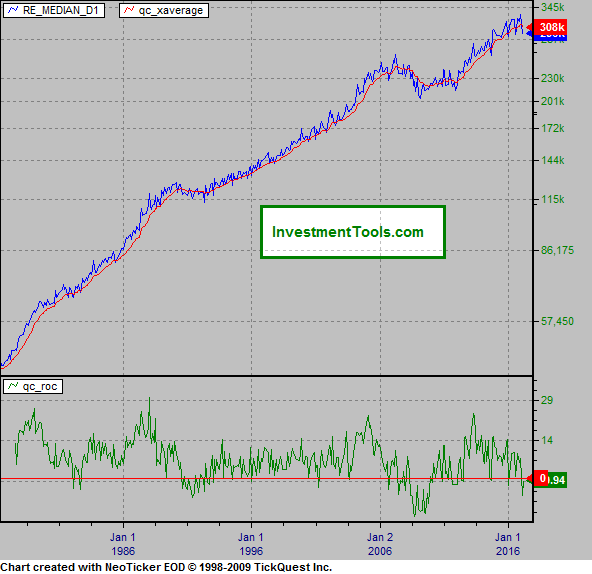Re: Groundhog day, every day, in the housing market
I'm still not convinced, although I'm willing to be, that Alt energy or infrastructure will be the next "bubble". However, it does set up an interesting question about the definition of a bubble. In the '90s, they blew up the valuations of dubious dotcom companies that would never make a penny of net profits. In this decade, they created trillions of dollars of "fictitious value" in residential housing (now they may be trying a rerun in the equity markets but that's another story). Most would probably agree that both cases were a serious misallocation of capital.
Suppose then, that significant capital was directed towards alternative energy and it actually produced positive, beneficial results (as opposed to boondoggles like corn ethanol). That would actually be a good thing, right?
Now valuations of the public companies or commodities associated with such an effort might significantly overshoot "fair value"; just like the '90s companies that were actually viable like Cisco, Oracle, Intel etc.. But would that alone make it a bubble or should the title of bubble be reserved for serious misallocations of capital?
Regarding infrastructure, as I said before, I'm not sure that a country that doesn't "build shit" anymore is in dire need of a massive infrastructure upgrade. On the other hand, if there was big money to be made, it's no stretch to imagine the big money boys imposing an infrastructure upgrade on the country whether it needs one or not. But lets be generous and assume that an infrastructure upgrade would result in tangible future benefits to the society and the economy. The same question would apply.
So should we only designate something as a bubble when it results in serious misallocation of capital with no lasting benefits or is it simply any cycle that causes certain asset valuations to get over-stretched to the upside, regardless of the outcome?
I'm still not convinced, although I'm willing to be, that Alt energy or infrastructure will be the next "bubble". However, it does set up an interesting question about the definition of a bubble. In the '90s, they blew up the valuations of dubious dotcom companies that would never make a penny of net profits. In this decade, they created trillions of dollars of "fictitious value" in residential housing (now they may be trying a rerun in the equity markets but that's another story). Most would probably agree that both cases were a serious misallocation of capital.
Suppose then, that significant capital was directed towards alternative energy and it actually produced positive, beneficial results (as opposed to boondoggles like corn ethanol). That would actually be a good thing, right?
Now valuations of the public companies or commodities associated with such an effort might significantly overshoot "fair value"; just like the '90s companies that were actually viable like Cisco, Oracle, Intel etc.. But would that alone make it a bubble or should the title of bubble be reserved for serious misallocations of capital?
Regarding infrastructure, as I said before, I'm not sure that a country that doesn't "build shit" anymore is in dire need of a massive infrastructure upgrade. On the other hand, if there was big money to be made, it's no stretch to imagine the big money boys imposing an infrastructure upgrade on the country whether it needs one or not. But lets be generous and assume that an infrastructure upgrade would result in tangible future benefits to the society and the economy. The same question would apply.
So should we only designate something as a bubble when it results in serious misallocation of capital with no lasting benefits or is it simply any cycle that causes certain asset valuations to get over-stretched to the upside, regardless of the outcome?



Comment